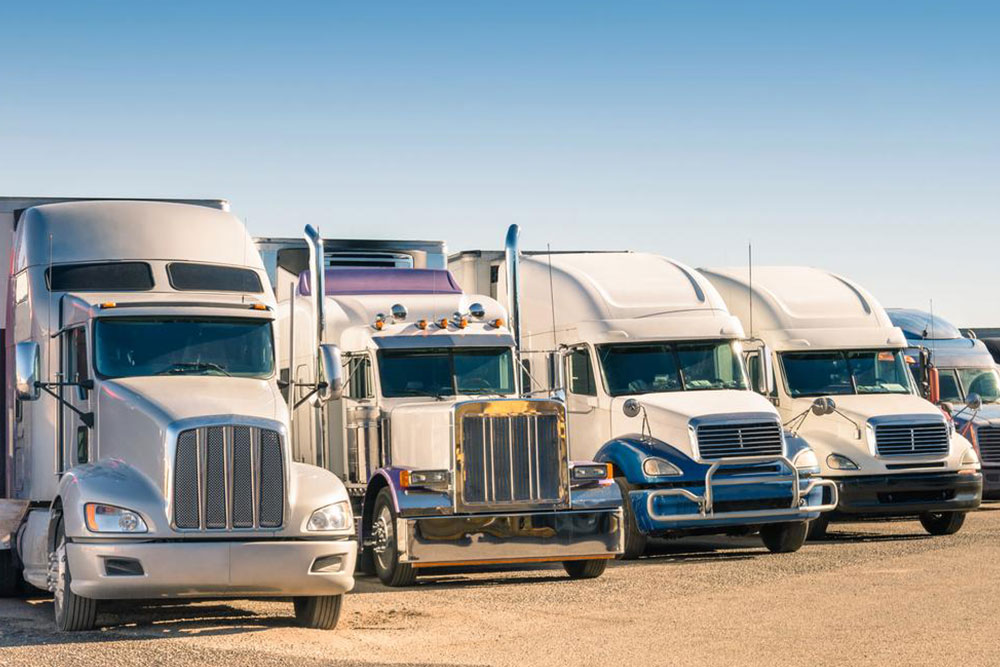Comprehensive Guide to Different Types of Commercial Truck Driving Careers
Explore various types of commercial truck driving careers in this detailed guide. Learn about roles such as dry van, flatbed, tanker, and auto transport, including responsibilities, income potential, and key skills required. Make informed career choices suited to your interests and expertise in the trucking industry.

Comprehensive Guide to Different Types of Commercial Truck Driving Careers
Discovering Various Truck Driving Career Paths
If you're contemplating a professional career as a truck driver, it's essential to understand the wide array of specialized roles available within the trucking industry. Not all truck driving jobs are the same; each involves distinct responsibilities, vehicle types, and skill requirements. Choosing the right career path aligned with your interests, skills, and lifestyle preferences can set you up for success and satisfaction in this dynamic industry.
Understanding the specific demands, advantages, and potential income of various truck driving roles allows you to make informed decisions. Whether you're drawn to long-haul routes, delicate vehicle transportation, or specialized cargo, gaining detailed insights helps you evaluate which career path best suits your goals.
In this comprehensive guide, we'll explore four major categories of commercial truck driving careers, examining the nature of each role, typical responsibilities, earning potential, and key requirements. This will empower you to make a strategic choice that matches your skills and aspirations.
Before selecting your career pathway, consider factors such as your driving experience, physical ability, income expectations, work-life balance, and the type of companies you wish to work with. Here are some prominent trucking careers to explore in detail:
Dry Van Trucking
This role involves operating enclosed trailers that carry non-perishable goods. It's widely regarded as one of the most accessible entry points into commercial trucking, making it a popular choice for newcomers. Responsibilities typically include picking up shipments, navigating routes, and ensuring cargo safety during transit. The cargo can range from clothing and electronics to packaged foods, depending on the employer.
Dry van trucking usually offers stable work schedules and steady income. Many drivers start in this field and gradually transition to more specialized roles as they gain experience. Flexibility in routes and destinations often appeals to drivers seeking predictable routines.
Flatbed Trucking
If you're interested in higher earning potential and enjoy physical work, flatbed trucking could be the right choice. This role involves hauling oversized, heavy, or irregularly shaped loads like construction materials, machinery, or large equipment. Securing loads properly requires knowledge of proper tie-down techniques and safety protocols—skills that are crucial in this specialization.
Flatbed trucking demands physical strength and attention to detail, but it often compensates with higher wages due to the complexity and risk involved. Many experienced flatbed drivers find this niche rewarding both financially and professionally. Safety training and certifications are often required to handle heavy or awkward loads securely.
Tanker Trucking
This specialized trucking involves transporting liquids, including chemicals, fuels, or food-grade liquids, in tanker trucks. It requires additional training and certification because of the potential hazards and the complexities of handling liquid cargo safely.
Tankers pose unique challenges, such as maintaining stability during transit, managing hazardous materials, and adhering to strict safety regulations. Drivers in this field often work with chemical companies, fuel suppliers, or food producers. The role demands technical knowledge of liquids and safety procedures, but it can be highly lucrative, especially for experienced drivers with specialized certifications.
Auto Transport
This job involves moving vehicles from manufacturing plants to dealerships or customers across various distances. Auto transport drivers operate specialized car carriers that can transport multiple vehicles simultaneously. It requires careful handling to prevent damage and secure vehicles properly during transit.
While auto transport may involve longer routes and heavier responsibilities, it also offers attractive compensation packages. No formal certification is typically required beyond standard commercial driver’s licenses, though additional training in vehicle securing and safety protocols can enhance job prospects.
Each of these trucking careers offers distinct advantages, challenges, and income potentials. Comparing options based on your personal skills, physical capacity, and career ambitions is essential. Reaching out to experienced drivers and industry consultants can provide valuable insights into each career path. Conduct thorough research and consider joining industry associations or forums to learn firsthand experiences before making your decision.




